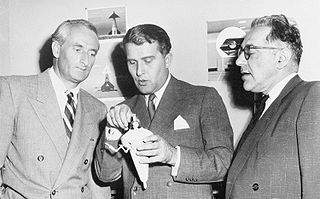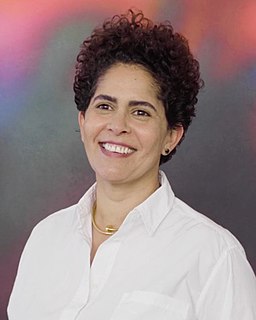A Quote by Willy Ley
Why should we try for space travel? It cannot be a substance of any kind that can be expected to pay. It can only be something intangible, not involving haulage, which is at the same time more valuable. There is something like that: Knowledge.
Related Quotes
Space travel is a dream for many men and women. I think my trip will be perceived differently by different genders because for women, a lot of time, not only space travel, it's not accessible to everyone, but is even less accessible to women, there are a lot more barriers for them especially if they live in countries where things like space travel, engineering, any science and technology-related field would be considered a more male-dominated field. And so I want to show them that there is nothing preventing woman, or making them less qualified to be involved in any of these fields.
"What is truth?" said jesting Pilate, and would not stay for an answer. Pilate was in advance of his time. For "truth" itself is an abstract noun, a camel, that is, of a logical construction, which cannot get past the eye even of a grammarian. We approach it cap and categories in hand: we ask ourselves whether Truth is a substance (the Truth, the Body of Knowledge), or a quality (something like the colour red, inhering in truths), or a relation ("correspondence"). But philosophers should take something more nearly their own size to strain at. What needs discussing rather is the use, or certain uses, of the word "true." In vino, possibly, "veritas," but in a sober symposium "verum."
We cannot build the new culture for learning to which we aspire in an environment which is depressed and dampened every day by the impact of alcohol and drug abuse, and we should not, and we cannot, hide from that reality any longer. More and more of our students are demanding that they not be imposed upon by others whose judgment and behavior are impaired by substance abuse. It is time to take a stand.
Why are we so addicted to factual knowledge? Why are we so uncomfortable with the unknown? Is it something about the anxiety of our time? Because of course that wasn't always the way. Even now the whole idea of the rational individual has been subject to question and yet we still cling to this idea of factual, rational knowledge being more valuable than whatever its opposite might be.
Venues are all the same, all feel the same, these generic blank spaces. I like artists like Lightning Bolt-bands that go in and kind of change things every time, play on the floor, set up in the middle of the room. They go in and they reinvent the space every time, which I feel is like the kind of thing that should just be happening.
It is that kind of space, that little space of longing, whether it is in something like romantic love, or whether it's in something like divine love. You know, that kind of search for something that's not quite in your grasp. It's a very powerful place to explore as an artist, because it's not necessarily sad.
There is something very unstabilizing about not knowing where you're coming from or where you're going. There's something very romantic about it, because you have this search for the unknown. But at the same time, sometimes I'm like, "God, if I were to die tomorrow, where would I like to be buried?" I wouldn't know. That's kind of a heavy thought, but it's a fact. You don't know anymore where you belong.
Triumphs against the natural order of living exact unforeseen payments. At the same time that man attempts to straighten a crooked nature, he is striving to annihilate space, which seems but another phase of the war against substance. We ignore the fact that space and matter are shock absorbers; the more we diminish them the more we reduce our privacy and security.
All schools, all colleges, have two great functions: to confer, and to conceal, valuable knowledge. The theological knowledge which they conceal cannot justly be regarded as less valuable than that which they reveal. That is, when a man is buying a basket of strawberries it can profit him to know that the bottom half of it is rotten.





































